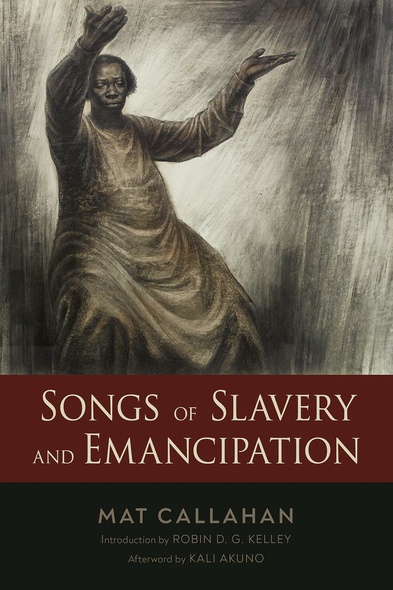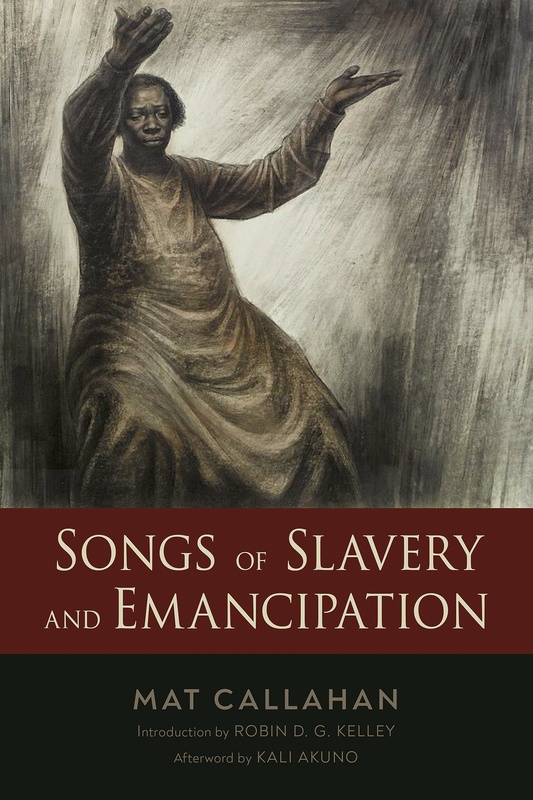
Songs of Slavery and Emancipation
Throughout the history of slavery, enslaved people organized resistance, escape, and rebellion. Sustaining them in this struggle was their music, some examples of which are sung to this day. While the existence of slave songs, especially spirituals, is well known, their character is often misunderstood. Slave songs were not only lamentations of suffering or distractions from a life of misery. Some songs openly called for liberty and revolution, celebrating such heroes as Gabriel Prosser and Nat Turner, and, especially, celebrating the Haitian Revolution.
The fight for freedom also included fugitive slaves, free Black people, and their white allies who brought forth a set of songs that were once widely disseminated but are now largely forgotten, the songs of the abolitionists. Often composed by fugitive slaves and free Black people, and first appearing in the eighteenth century, these songs continued to be written and sung until the Civil War. As the movement expanded, abolitionists even published song books used at public meetings.
Mat Callahan presents recently discovered songs composed by enslaved people explicitly calling for resistance to slavery, some originating as early as 1784 and others as late as the Civil War. He also presents long-lost songs of the abolitionist movement, some written by fugitive slaves and free Black people, challenging common misconceptions of abolitionism. Songs of Slavery and Emancipation features the lyrics of fifteen slave songs and fifteen abolitionist songs, placing them in proper historical context and making them available again to the general public. These songs not only express outrage at slavery but call for militant resistance and destruction of the slave system. There can be no doubt as to their purpose: the abolition of slavery, the emancipation of African American people, and a clear and undeniable demand for equality and justice for all humanity.
This work would certainly make a strong teaching text for future students andscholars interested in finding sources about slave resistance from enslaved (singing) voices.
Ultimately, Callahan helps to demonstrate how enslaved and abolitionist songs in America
became ‘a powerful weapon against slavery and anti-Black racism,' still holding great
relevance to this day.
Taken together, the book, CD’s and film offer an important window into nineteenth century black protest music. They also offer a fascinating view of how enslaved people resisted the circumstances of their oppression, even at the risk of their lives.
The contents of this book are, quite simply, fascinating and any reader with an interest in the history of slavery, the history of the U.S and the history of American music should have this down as one for their wish list but it’s a book that will have a wider appeal than just to those directly interested in the subject matter, because it also represents some outstanding research and a fascinating story about how these songs were brought together and what they mean for society as a whole.
The book and the record album constitute a rather rare gift: a rich trove of material that is highly edifying and simultaneously entertaining, an excellent pedagogical and research resource.
Mat Callahan’s Songs of Slavery and Emancipation stands ten feet tall for what it uncovers. The book argues persuasively that not all song compositions written by enslaved Africans spoke of freedom solely in coded lyrics, as in some folk spirituals. Many songs were explicit about the means of achieving liberation. Nomere dreams of freedom, they were appeals to action. . . . Mat Callahan’s book is destined to become an indispensable resource for scholars and enthusiasts of African American music history.
Mat Callahan’s carefully documented and richly interpreted book is the first modern comprehensive compilation of the musical archive of Black resistance to slavery and abolition. I cannot praise this labor of scholarly passion and conscience enough. It is a game changer in the histories of musicology and abolition.
Mat Callahan’s Songs of Slavery and Emancipation restores to view a wonderful trove of verses that give us access to the voices and lived experience of enslaved African Americans and their abolitionist supporters. It is an invaluable historical and musical resource.
Mat Callahan unearths important new evidence concerning the creative, subtle, and persistent resistance of enslaved Black people in the US.
This book is itself an act of liberation. Guided by inspired scholars/activists, we discover long-buried songs that remind us of a burden still not fully shed, but also of the extraordinary grit, creativity, and perseverance of those who have fought the good fight.
Mat Callahan is author or editor of five books including The Explosion of Deferred Dreams: Musical Renaissance and Social Revolution in San Francisco, 1965–1975 and A Critical Guide to Intellectual Property. His recent projects include the republication of Songs of Freedom: The James Connolly Songbook by Irish revolutionary James Connolly; the recording and publication of Working-Class Heroes: A History of Struggle in Song: A Songbook; and the launch of the multimedia project Songs of Slavery and Emancipation, which includes this book, an album of song recordings, and a film.




